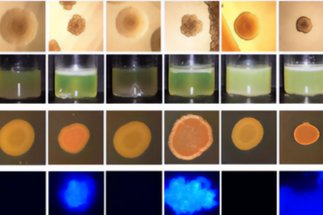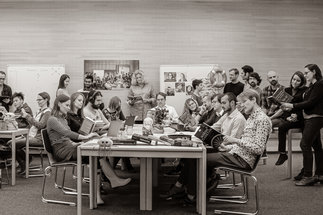Research at the Max Planck Institute for Evolutionary Biology
Research at the Max Planck Institute for Evolutionary Biology encompasses various aspects of evolution. Our institute currently houses two departments with numerous research groups, along with several independent research and guest groups. Explore with us the captivating realm of evolution and delve into pioneering research topics.
The group's work is both theoretical and empirical and makes frequent use of experimental microbial populations to study evolutionary process. Evolutionary transitions in individuality and the origins of multicellularity are a growing fascination.
[more]
The theoretical biology group uses mathematics and computer simulations to study the dynamics of evolution. Our team is interdisciplinary, with backgrounds ranging from biology, physics, and mathematics to computer science and economics.
[more]
Here you will find an overview of other research groups at our institute, some of which work independently of departments.
[more]
Max Planck Research Groups offer postdocs a first-class form of support on their scientific career path; a rigorous, centrally controlled selection process precedes the filling of group leadership positions. Here you can find an overview of the Max Planck Research Groups at our institute in Plön.
[more]
The Max Planck Fellow Programme promotes cooperation between outstanding university professors and Max Planck Society researchers. The appointment of university professors as Max Planck Fellows is limited to a five-year period and also entails the supervision of a small working group at a Max Planck institute.
Here you can find an overview of the Max Planck Fellow groups at our institute.
[more]
Since 2018, up to ten Lise Meitner Groups per year will be advertised to recruit and promote exceptionally qualified female scientists as part of this excellence program of the Max-Planck-Society.
[more]
Here is an overview of former departments that currently continue to research at our institute under an emeritus status.
[more]

